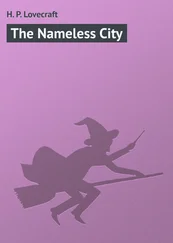Maurus Jokai - The Nameless Castle
Здесь есть возможность читать онлайн «Maurus Jokai - The Nameless Castle» весь текст электронной книги совершенно бесплатно (целиком полную версию без сокращений). В некоторых случаях можно слушать аудио, скачать через торрент в формате fb2 и присутствует краткое содержание. Город: New York, Год выпуска: 1898, Издательство: Doubleday, Page & Company, Жанр: Историческая проза, на английском языке. Описание произведения, (предисловие) а так же отзывы посетителей доступны на портале библиотеки ЛибКат.
- Название:The Nameless Castle
- Автор:
- Издательство:Doubleday, Page & Company
- Жанр:
- Год:1898
- Город:New York
- ISBN:нет данных
- Рейтинг книги:4 / 5. Голосов: 1
-
Избранное:Добавить в избранное
- Отзывы:
-
Ваша оценка:
- 80
- 1
- 2
- 3
- 4
- 5
The Nameless Castle: краткое содержание, описание и аннотация
Предлагаем к чтению аннотацию, описание, краткое содержание или предисловие (зависит от того, что написал сам автор книги «The Nameless Castle»). Если вы не нашли необходимую информацию о книге — напишите в комментариях, мы постараемся отыскать её.
The Nameless Castle — читать онлайн бесплатно полную книгу (весь текст) целиком
Ниже представлен текст книги, разбитый по страницам. Система сохранения места последней прочитанной страницы, позволяет с удобством читать онлайн бесплатно книгу «The Nameless Castle», без необходимости каждый раз заново искать на чём Вы остановились. Поставьте закладку, и сможете в любой момент перейти на страницу, на которой закончили чтение.
Интервал:
Закладка:
Marie came close to the singular woman, bent over her, and pressed a kiss on the fat cheeks, then held her own for a return caress.
This action of the young girl seemed to please the woman. She struggled to her feet, muttering: “She is still the same. May God guard her from all harm!” Then she waddled toward Katharina, took her slender hand in her own broad palm, and added: “Take good care of my treasure, your ladyship. Up to now, I have taken the broomstick every evening, before going to bed, and thrust it under all the furniture, to see if there might not be a thief hidden somewhere. You will have to do that now. A great treasure, great care! And, your ladyship, when you shall have in your house such a little chemise and petticoat, with the little child in them, trotting after you, chattering and laughing, clasping her arms round you and kissing you, and if some one should say to you, as they said to me, ‘How great a treasure would induce you to exchange this little somebody in the red petticoat for it?’ and if you should say, ‘I will give up the child for so much,’ then, your ladyship, you too may say, as I say, that your heart is a heart of stone.”
Katharina’s face had grown very white. She staggered toward Marie, caught her arm, and drew her toward the door, gasping:
“Come—come—let us go. The steam—the heat of—the kitchen makes—me faint.”
The fresh air of the court soon revived her.
“Let us play a trick on Ludwig,” she suggested. “We will take his canoe, and cross the cove to the manor. We can send it back with a servant.”
She ordered her coachman to take the carriage home; then she took Marie’s hand and led her down to the lake.
They were soon in the boat. Marie, who had learned to row from Ludwig, sent the little craft gliding over the water, while Katharina held the rudder.
Very soon they were in the park belonging to the manor; and how delighted Marie was to see everything!
A herd of deer crossed their path, summoned to the feeding-place by a blast from the game-keeper’s horn. The graceful animals were so tame that a hind stopped in front of the two ladies, and allowed them to rub her head and neck. Oh, how much there was to see and enjoy over here!
Katharina could hardly keep pace with the eager young girl, who would have liked to examine the entire park at once.
What a number of questions she asked! And how astonished she was when Katharina told her the large birds in the farm-yard were hens and turkeys. She had never dreamed that these creatures could be so pretty. She had never seen them before—not even a whole one served on the table, only the slices of white meat which Lisette had always cut off for her. But what delighted her more than anything else was that she might meet people, look fearlessly at them, and be stared at in return, and cordially return their friendly “God give you a good day!”
What a pleasure it was to stop the women and children, with all sorts and shapes of burdens on their heads or in their arms, and ask what they were carrying in the heavy hampers; to call to the peasant girls who were singing merrily, and ask where they had learned the pretty songs.
“Oh, how delightful it is here!” she exclaimed, flinging her arms around the baroness. “I should like to dig and work in the garden all day long with these merry girls. How happy I shall be here!”
“tomorrow we will visit the fields,” said Katharina “Can you ride?”
“Ride?” echoed Marie, in smiling surprise. “Yes—on a rocking-horse.”
“Then you will very soon learn to sit on a living horse.”
“Do you really believe I shall?” breathlessly exclaimed Marie.
“Yes; I have a very gentle horse which you shall have for your own.”
“One of those dear, tiny little horses from which one could not fall? I have seen them in picture-books.”
“He is not so very small; but you will not be afraid of falling off when you have learned to ride. Then, when you can manage your horse, we will ride after the hounds—”
“No, no,” hastily interposed the young girl; “I shall never do that. I could not bear to see an animal hurt or killed.”
“You will have to accustom yourself to seeing such sights, my dear little daughter. Riding and hunting are necessary accomplishments; besides, they strengthen the nerves.”
“Have not the peasant women got strong nerves, little mama?”
“Yes; but they strengthen them by hard work, such as washing clothes.”
“Then let us wash clothes, too.”
Katharina smiled indulgently on the innocent maid, and the two now entered the manor, where Marie made the acquaintance of Fräulein Lotti, the baroness’s companion.
Marie’s attention was attracted by the number of books she saw everywhere; and they were all new to her. Ludwig had never brought anything like them to the castle. There were poems, histories, romances, fables. Ah, how she would enjoy reading every one of them!
“Oh, who is doing this?” she exclaimed, when her eyes fell on an easel on which was a half-finished painting—a study head.
Her admiration for the baroness increased when that lady told her the picture was the work of her own hand.
“How very clever you must be, little mama! I wonder if you could paint my portrait?”
“I will try it tomorrow,” smilingly replied the baroness.
“And what is this—this great monster with so many teeth?” she asked, running to the piano.
Katharina told her the name of the “monster,” and, seating herself in front of the “teeth,” began to play.
Marie was in an ecstasy of delight.
“How happy you ought to be, little mama, to be able to make such beautiful music!” she cried, when Katharina turned again toward her.
“You shall learn to play, too; Fräulein Lotti will teach you.”
For this promise Marie ran to Fräulein Lotti and embraced her.
While at dinner Marie suddenly remembered that she had not yet seen the little water-monster, and inquired about him.
The baroness told her that the boy had gone back to his fish companions in the lake; then asked: “But where did you ever see the creature?”
Marie hesitated a moment before replying; a natural modesty forbade her from confessing to Ludwig’s betrothed wife that he had taught her how to swim, and had always accompanied her on her swimming excursions in his canoe.
“I saw him once with you in the park, when I was looking through the telescope,” she answered, with some confusion.
“Ah! then you also have been spying upon me?” jestingly exclaimed the baroness.
“How else could I have learned that you are so good and beautiful?” frankly returned the young girl.
“Ah, I have an idea,” suddenly observed the baroness. “That spy-glass is here now. The surveyor to whom Ludwig gave it sent it to me when he had done with it. Come, we will pay Herr Ludwig back in his own coin! We will spy out what the gentlemen are doing over at the castle.”
Marie was charmed with this suggestion, and willingly accompanied her “little mama” to the veranda, where the familiar telescope greeted her sight.
Two of the windows in that side of the Nameless Castle which faced the manor were lighted.
“That is the dining-room; they are at dinner,” explained Marie, adjusting the glass—a task of which the baroness was ignorant. When she had arranged the proper focus, she made room for Katharina, who had a better right than she had to watch Ludwig.
“What do you see?” she asked, when Katharina began to smile.
“I see Ludwig and the vice-palatine; they are leaning out of the window, and smoking—”
“Smoking?” interposed Marie. “Ludwig never smokes.”
“See for yourself!”
Katharina stepped back, and Marie placed her eye to the glass. Yes; there, plainly enough, she beheld the remarkable sight: Ludwig, with evident enjoyment, drawing great clouds of smoke from a long-stemmed pipe. The two men were talking animatedly; but even while they were speaking, the pipes were not removed from their lips—Ludwig, indeed, at times vanished entirely behind the dense cloud of smoke.
Читать дальшеИнтервал:
Закладка:
Похожие книги на «The Nameless Castle»
Представляем Вашему вниманию похожие книги на «The Nameless Castle» списком для выбора. Мы отобрали схожую по названию и смыслу литературу в надежде предоставить читателям больше вариантов отыскать новые, интересные, ещё непрочитанные произведения.
Обсуждение, отзывы о книге «The Nameless Castle» и просто собственные мнения читателей. Оставьте ваши комментарии, напишите, что Вы думаете о произведении, его смысле или главных героях. Укажите что конкретно понравилось, а что нет, и почему Вы так считаете.












